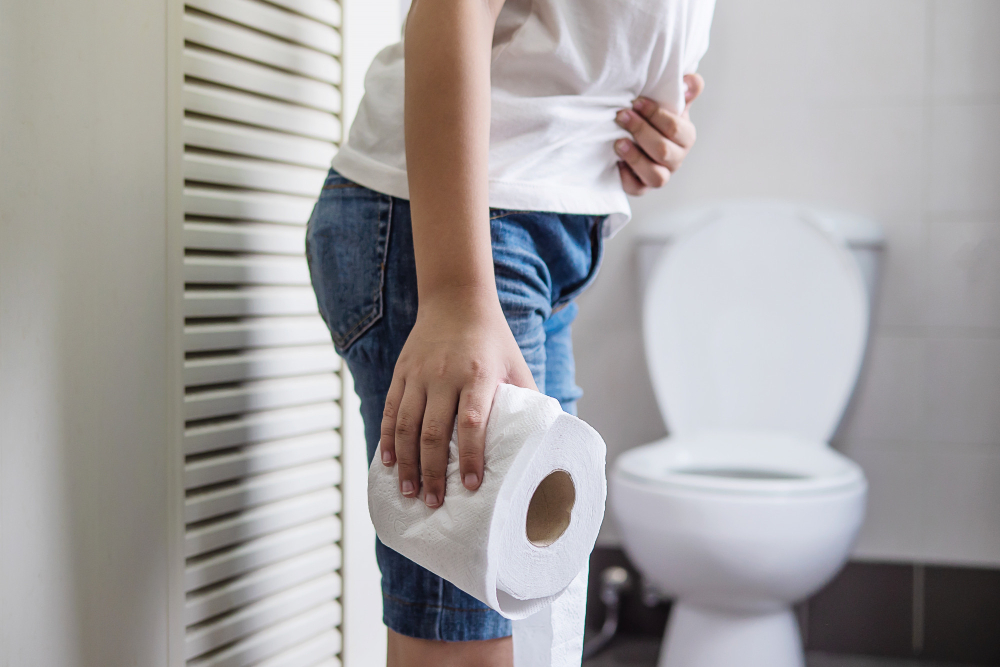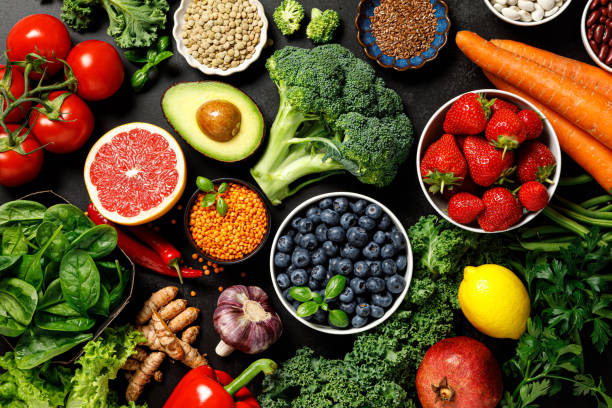Constipation is a common issue that arises when bowel movements become infrequent or difficult. While it can be caused by various factors, dietary changes are often a primary trigger. A sudden shift in eating habits—whether due to a new diet plan, travel, or lifestyle adjustments—can disrupt the digestive system, leading to discomfort, bloating, and irregular bowel movements. Understanding the connection between diet and constipation, and how to manage it, is key to maintaining optimal gut health.
How Diet Changes Lead to Constipation

Low Fibre Intake: Fibre is essential for adding bulk to stool and promoting smooth bowel movements. A sudden reduction in fibre-rich foods can result in constipation.
Inadequate Hydration: Fibre needs sufficient water to function properly. Without enough fluids, stool can become hard and difficult to pass.
High Consumption of Processed Foods: Processed foods are often low in fibre and high in additives, which can disrupt digestion.
High-Protein Diets: Diets like keto or Atkins focus on protein and fats, often reducing fibre-rich carbohydrates, which may lead to constipation.
Introducing New Foods: Sudden inclusion of unfamiliar or hard-to-digest foods in the diet can temporarily affect bowel movements.
Foods That Relieve Constipation

Incorporating certain foods can significantly improve digestion and prevent constipation. Here’s a list of constipation-friendly foods:
- Fibre-Rich Foods: Fruits: Ripe papaya, Guava, Apples, pears (with skin), berries, and oranges.
Vegetables: ladies fingers, Spinach, kale, broccoli, and carrots.
Whole Grains: Oats, quinoa, brown rice, and whole wheat bread.
- Hydrating Foods: Water-rich options like cucumbers, watermelons, and zucchinis help soften stool and support hydration.
- Natural Laxatives: Prunes: Rich in sorbitol, prunes act as natural laxatives. Flaxseeds and Chia Seeds: Provide omega-3 fatty acids and fibre to regulate bowel movements.
- Fermented Foods: Yogurt, kefir, sauerkraut, and kimchi contain probiotics that promote healthy gut bacteria.
- Healthy Fats: Avocados, olive oil, and nuts lubricate the digestive tract, making it easier to pass stool.
- Legumes: Lentils, beans, and chickpeas are excellent sources of fibre and promote gut health.
- Sweet Potatoes: Packed with both soluble and insoluble fibre, sweet potatoes improve digestion.
- Dried Fruits: Dates, figs, and raisins are fibre-rich and act as natural stool softeners.
- Citrus Fruits: Oranges and grapefruits help with hydration and digestion.
- Warm Soups and Broths: These provide hydration and soothe the digestive tract.
- Ripe Bananas: High in soluble fibre, which helps regulate bowel movements.
- Unripe Bananas: May contribute to constipation due to resistant starch.
- Sweet Potatoes: Contain both soluble and insoluble fibre that aids digestion and softens stool.
- Dried Fruits: Dates, figs, and raisins are rich in fibre and act as natural laxatives.
- Herbal Remedies: Fenugreek Seeds: Soaked overnight and consumed in the morning can aid in relieving constipation. Psyllium Husk (Isabgol): Absorbs water to bulk up stool and promote easy passage.
- Citrus Fruits: Oranges and grapefruits contain fibre and vitamin C, which help in digestion and hydration.
- Warm Soups and Broths: Promote bowel movement by hydrating the gut and easing digestion.
Lifestyle Adjustments

- Avoid Sedentary Lifestyle:
- Prolonged sitting can slow digestion. Incorporate regular movement or light stretching throughout the day.
- Stress Management:
- Chronic stress impacts gut health. Practices like yoga, meditation, or breathing exercises can alleviate constipation.
- Listen to Your Body:
- Ignoring the urge to pass stool can worsen constipation over time.
- Monitor Side Effects of Medications:
- Some medicines (e.g., painkillers, antidepressants) may cause constipation. Consult your doctor for alternatives or remedies.
Prevention Tips for Constipation

- Increase Fibre Gradually: Sudden fibre increases can cause bloating. Add fibre-rich foods slowly to your diet.
- Stay Hydrated: Drink at least 8–10 glasses of water daily, especially when consuming more fibre.
- Avoid Overeating Processed Foods: Processed snacks and fast food lack fibre and can slow digestion.
- Regular Meal Times: Eating at consistent intervals helps regulate bowel movements.
- Limit Dairy Products: Excessive consumption of cheese and milk can lead to slower digestion.
- Chew Food Properly: Proper chewing aids digestion and prevents constipation.
- Physical Activity: Exercise stimulates intestinal muscles and promotes regular bowel movements.
- Establish a Routine: Train your body by visiting the restroom at consistent times.
Remedies for Constipation

- Warm Water with Lemon: Stimulates digestion when taken first thing in the morning.
- Herbal Teas: Ginger, peppermint, or chamomile tea can relax the digestive tract and ease constipation.
- Psyllium Husk (Isabgol): Adds bulk to stool and promotes easier passage.
- Magnesium-Rich Foods: Almonds, spinach, and dark chocolate relax intestinal muscles.
- Castor Oil: A natural laxative that can be used occasionally under medical guidance.
- Gentle Abdominal Massage: Stimulates bowel movement when done in a circular motion.
Adverse Effects of Diet-Related Constipation
Long-term constipation can lead to discomfort and more serious health issues, such as:
- Hemorrhoids: Straining during bowel movements can cause swollen veins in the rectum.
- Anal Fissures: Hard stools can cause small tears in the anal lining.
- Chronic Discomfort: Persistent bloating, cramps, and a sense of incomplete bowel evacuation.
When to Seek Medical Help
While occasional constipation is normal, consult a healthcare provider if:
- Constipation persists for more than a week.
- Severe pain, blood in stool, or unexplained weight loss occurs.
- Chronic issues continue despite dietary and lifestyle changes.
Conclusion
Constipation due to dietary changes is manageable with mindful eating habits and lifestyle adjustments. Focus on high-fibre foods, stay hydrated, and maintain an active lifestyle to promote healthy digestion. If constipation persists, seek professional advice to address any underlying health concerns. By adopting these strategies, you can enjoy better digestive health and a more comfortable daily routine.


